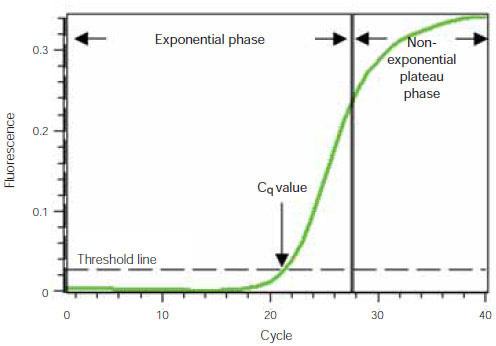Quantitative Polymerase Chain Reaction.
A molecular laboratory test that measures the quantity of a particular target DNA sequence, defined by a pair of ‘primers’ (short DNA tags). During the PCR run, the number of copies of the target DNA doubles in each cycle (i.e. grows exponentially). When a lot of copies are present initially, the exponential phase will be reached quicker and will give a lower ‘Ct value’ (number of cycles).
Figure from an article by Bio-Rad

N.B. When qPCR is performed on DNA that has been produced from RNA by reverse transcription, this is known as ‘RT-qPCR’ (Reverse Transcriptase qPCR). Some authors use the term ‘RT-PCR’ to mean real-time PCR (i.e. the same as qPCR), which is rather unhelpful. This article by Enzo explains the terms well.
